CARE IS TRANSITIONAL
STORY
CARE IS TRANSITIONAL
STORY
“Time is a sort of river of passing events, and strong is its current; no sooner is a thing brought to sight than it is swept by and another takes its place, and this too will be swept away.”
Marcus Aurelius
Within the time society disclose new needs for care. People that where not considered as active receivers, but confine as mere receiver of most of the time unwanted care and forces drugging, such as people with mental illness, mental disabilities and degenerative diseases, now started to rise their unique voices. In a timeline starting from the ancient Greeks where care was not even conceived for people with mental and physical impairments, passing by the compulsory institutionalization, up to these days where personalized care is shyly taking place, humanity has made great strides. However, what will the future of care be and look like?
What have we learnt about care from the past?
What if, in the next century, people will be able to intervene on their unique genetic patterns and rearrange and cure diseases that we are now struggling to understand? At the core of this work is the question of how a narrative mode of writing can be used to reflect upon different approaches to care. A conversation between four women coming from different historical eras and the narration of their life experience is the pillar of this intervention, which interlaces fiction and historical facts with a speculative approach about the future of care.
Agata
Clio
Andra
Christina
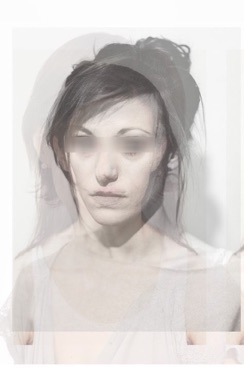
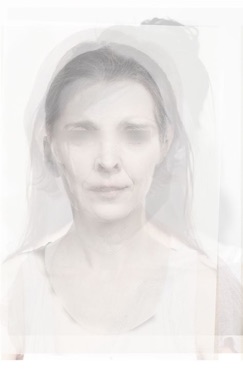
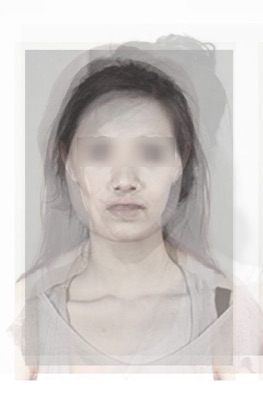
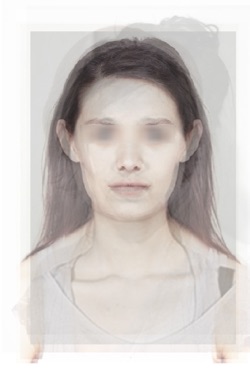
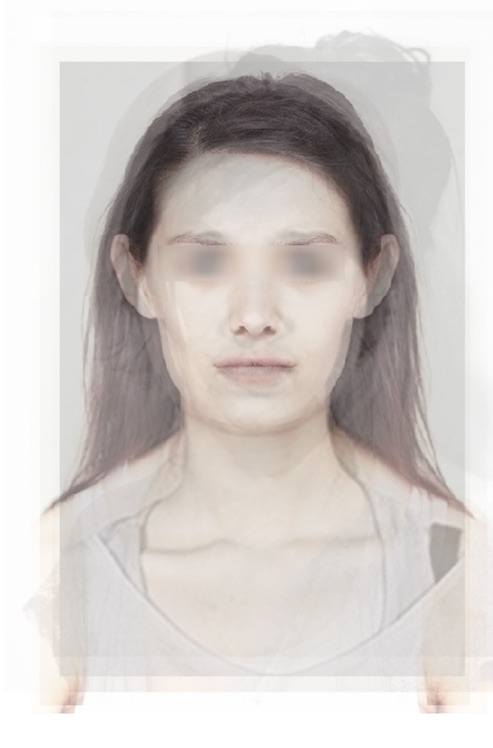
a dialogue between four women from different historical eras
-Do you need help?
-Yes, Please! I don’t understand where I am… I… I feel confused.
-Come let's sit down here, what's your name?
-Thank you! I feel confused, I, I am… I’m Clio. What’s your name?
-Agata, nice to meet you!
Sitting on the bench they notice the presence of another woman. The woman sitting on a bench swung back and forth, without noticing the presence of Clio and Agata.
-Tell me Clio, where do you come from?
-I come from Anficlea, in Greece!
-Greece must be beautiful!! Said the mysterious woman who did not seem to care about them.
Agata asked her: What’s your name?
-My name is Christina!
-I've heard you do not know where you are… for me it's the same, I also do not know where I am.
At that time a girl with a strange item in her hands approached the three women.
Instead of talking to them, she began to tap the object, as is she was pressing some sorts of invisible buttons. Clio and Christina looked at each other, what was happening was for them a complete mystery, however Agata’s reaction was different, she gave the impression to perfectly understand what was happening.
The girl showed her mysterious object to the three women. While Clio and Christina couldn’t understand what was written and kept looking at each other, Agata grabbed the object and read aloud:
-Hi! I’m Andra I can’t speak with my voice because of my autism!
-I’m coming from 2017 and I should meet with three women: Clio, from Greece comes from 423 BC. Christina is from 1932, and, lastly I should meet Agata, who’s coming from a far future, 3020.
When Agata finished reading, the three women were startled and frightened.
Agata timidly asked about the purpose of that strange meeting. Clio wondered who the Autism was and why this Autism had brought them together. Andra smiled and began to write again in her strange object.
-Dear friends today we are here together to share our life and care experiences. Autism is not a person but a condition that I live with, and because of it I can’t speak and I can’t stand in crowded places or I can’t hear high and sudden sounds. Autism is the reason why sometimes I do weird things and is the reason why sometimes people are afraid of me, and isolate me.
Christina bitterly smiled.
-I know what you mean… I don’t know Autism, but since I was ten, I live in a psychiatric hospital. I was refused by my family because I was acting strangely. I learned to speak at the age of five. After my repeated crises, the doctor advised my parents to get me interned. I did not have a choice, and still live there today. Many people live in the same hospital where I live. The majority of us are treated with sleep therapy treatment. At the beginning the doctors used drugs and medicines, but lately they are using electrical stimulation to force us to sleep.
Christina's voice flickered, and from her sad and weary face was visible her pain.
-The electrical stimulation is a torture, I have never felt such a pain in my whole life. After the treatment I am not myself anymore. I feel nothing, with an exception, fear… but with my friend we started to protect each other. Yes, we protect each other.
In Christina's eyes there was a different light, when she started to talk about her friends.
-We've figured out how to run away from those electrical discharges… Yes! There are times when one of us has a crisis, but crises are always passing after few minutes. The important thing is to hide the person with the crisis from doctors and nurses. This is not always easy and sometimes we fail… but when we are capable to handle the crisis of a friend is a victory for everyone.
After Christina’s story, the initial shock disappeared leaving room for empathy. Clio felt particularly emotional after Christina’s story, and this gave her the strength to share her story.
-In the age where I come from, there are no treatments and cures for women with mental and physical problems. We are isolated from the community because the gods didn’t like us. It is so painful for me to be rejected by my loved once and from the majority of the people that I know. Long time ago it was different, I was healthy. When I was fourteen, I had my first child. When he was two, I started to have strange fixations and I couldn’t sleep at night I was always worry for something, but I could not explain what scared me. Once I went to the temple to offer sacrifices for all my problems to come to an end, but on my way back home I had an incident and fell violently on the ground. That accident left me partially paralyzed, for this reason I cannot move my left hand. Also my appearance, with time and the paralysis, has changed. At the beginning my neighbor told me about the Hippocratic medicine and she tried to help me using some principle derived from the philosophy of Hippocrates. My neighbor was not a doctor, but the husband of her sister was a doctor and she had heard a conversation about Hippocrates theories concerning mental health and diet.
The first positive results came through the cure and I started to sleep again and the strange fixations passed. However, for the rest of my community I was the woman who did not like to the gods and they all avoided me. Despite my improvements, the community's opinion has had a great influence, and my family has rejected me away so that the bad luck would not fall on them too. Even my neighbor stopped helping me.
-So the only help you received is that of your neighbor? Why did she stop helping you?
Christina exclaimed full of anger.
Andra
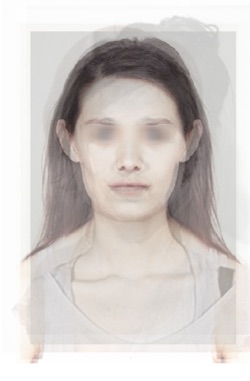
Andra wrote on her mysterious object:
-The stigma that mental health is capable of creating is incredibly powerful. Perhaps you Christina didn’t know this because you lived your entire life inside an institute. Even so there have been moments in recent history where people with mental and physical disability were killed in the name of extreme eugenics. However nowadays, in 2017, things are changing for people with disability. I was able to go to school and I was the unique autistic person in my class. Some professors and classmates did not accept me but others did. It is not easy for me to have friends and I also see the fatigue of my parents to take care of me. Until I attended high school I had relationships with my non-autistic peers and had some activities to do during the day, but when I graduated, all this was over. My parents needed to hire two therapists and had to create activities to keep me busy during the day. There is not cure for autism and the unique things that I can do is to cope with my condition for the rest of my life.
For me it’s difficult to find a job because I am not independent, and everything is on my parents' shoulders.
I am grateful to my parents, because I do not live in an institute, nor I do take drugs. Thanks to them I have done various experiences around the world, which helped me sometimes to overcome the limits created by my condition. Now, thanks to my parents, in my country my story is used to raise public awareness concerning autism and disability. Many things have yet to be done, it is still difficult in 2017 to accept diversity, but our voice now began to be heard too.
Christina asked:
-How did you learn to use that strange tool that allows you to express yourself?
Andra:
-This is what we call ‘tablet’. The technique that I use to write is called ‘facilitated communication’. At the beginning, a therapist helped me to type single words, letter by letter, and after few years I learned to write by myself.

Agata
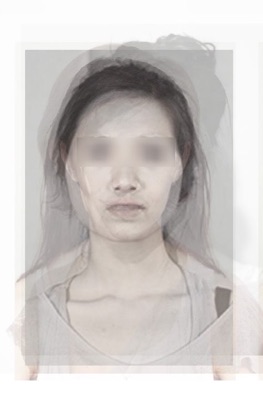
Until then, Agata remained silent, she just helped Andra reading her personal story. Agata comes from the future and she had already heard about what women and people with disabilities had lived in the past. She did not know how to talk about her experience, as that was together so different from the three other stories and at the same time so similar:
-In the time I live, everything is medically treated by modifying damaged genetic combinations. This happens even before our birth. In our lifetime, by using microchips, we can manipulate our genetic combinations to solve the health problems that arise, without the help of a doctor. Engineers work closely with doctors and we all use codes to alter compromised genetic combinations. There are also unofficial groups that create codes to cure outside the care provided by the official healthcare system. If you are smart enough you can create or modify your own codes. However, even though we can prevent cancer or stroke, we are not a healthy population, because to avoid a disease we create another one. It is as if it is impossible to escape from our human condition. Gods, communities or social inclusion are not problems nowadays, however it does seem to me that, when we get sick, we set to turn away the eventuality to die, and we do this in complete solitude.
Andra wrote
-Wow! It sounds fantastic! Does that mean that, in the future, I will be able to cure my Autism on my own?
Agata answered:
-Yes!
-However, you can cure Autism and after few months develop early signs of dementia or Schizophrenia or other type of illness, and you can spend all your time to cure yourself from several diseases. Using a metaphor, our generation is similar to a woman who tries to repair a hole in her dress using patches cut from that same dress, thus creating a loop of holes in different parts of the garment. Damaging and repairing over and over again.
The dialogue enacted in this page exploits design fiction as a lens through which we considered and could view in the future the notion of care.
What we know from the writing is that the experiences of these four women highlight the evolution and the transitional characteristics of care in four different historical periods and how that influenced each mode of care practice. However, the human condition is still the same; full of fragility, societal differences and uncertainties.
PRESENTED AND PUBLISHED AT DOES DESIGN CARE? WORKSHOP
Imagination Lancaster University
This work is licensed under a Creative Commons Attribution-NonCommercial-NoDerivs 2.0 Generic License
alessia cadamuro



